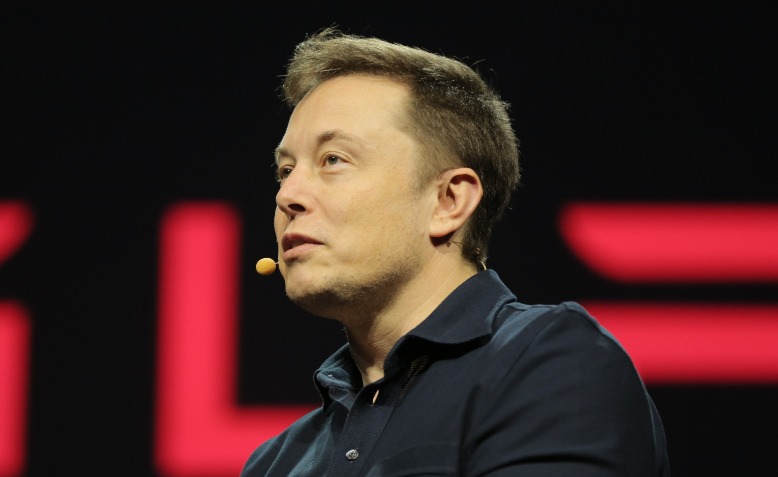 Elon Musk. Photo: Nvidia Corporation / Flickr / CC BY-NC-ND 2.0, license linked below article
Elon Musk. Photo: Nvidia Corporation / Flickr / CC BY-NC-ND 2.0, license linked below article
Elon Musk’s takeover of Twitter is a reminder that the billionaire control of our media and social media is the furthest thing from democracy, writes Terina Hine
Why does Elon Musk want to spend $44 billion on Twitter? Twitter is certainly not as exciting as rocketing to the moon, and it is neither new nor innovative. We are told this latest acquisition is not about making money either, which is lucky as the company lost over $1 billion in 2020.
Apparently, his most recent project is an act of a concerned citizen, intended to protect free speech and save democracy.
Musk has famously described Twitter as the “digital town square’, a place for open and lively debate, available to all. He tells us that under his leadership transparency will be ensured, “the spam bots” defeated and democracy protected. What a generous man.
And he has plenty to be generous with: his wealth is estimated at $273.6 billion (£209.21 billion) making him by some margin the richest man in the world, worth $92.3 billion (£70.58 billion) more than runner-up Jeff Bezos.
An alternative approach to the protection of democratic debate might have been for the public square to be made truly public – Musk could have used the Tim Berners-Lee’s model of the World Wide Web – but no, his philanthropy does not stretch that far, and public ownership of Twitter is not on the cards. Rather it appears Silicon Valley believes democracy thrives best when two billionaires control the four major social media platforms.
But billionaire control of news and information is certainly not a new phenomenon. Just as the 20th-century media barons bought control of newspapers and TV, today’s wealthy elite recognise the power and influence of the social media platforms and want their share of the goods. And Twitter, although neither the largest nor the most profitable platform, is arguably the most influential.
The Washington based think tank, the Pew Research Center produced a report in 2019 which showed Twitter users to be younger, more educated and more liberal than the general public; the data also showed Twitter users were more likely to be opinion formers. Twitter, more than Facebook, Instagram or TikTok, is home not just to ordinary people, but to politicians, world leaders, influential journalists and media channels as well as the business elite. It is also the main source of real time news. So it certainly has sway, and this acquisition is about control.
But how much control will Elon Musk have? Facebook’s (now Meta) Zuckerberg holds functional veto power over much of the decision-making within Facebook, Instagram and WhatsApp. Will Musk gain similar personal power?
One Musk supporter told R4’s Today Programme that it will be better to have Elon in charge than the current management. But even if that were true it surely misses the point. If Twitter really is our town square it should not be controlled by one man; therein lies the problem, Musk will hold absolute power and no one knows how he will use it.
In the US, as on Twitter itself, the response to the news has been predictably polarised: Republicans are jubilant, believing Musk’s reign will loosen the “censorship” the right has be subjected to. For years Republicans have complained that large technology platforms have targeted the right, pointing in particular to Donald Trump being banned from Twitter and Facebook following the January 6 2021 attack on the US Capitol. In reality, censorship across social media platforms has more often targeted left wing and Palestine solidarity activists and groups.
On the Democrat side Elizabeth Warren has called the deal “dangerous to democracy”. Concerned Democrats have highlighted Musk’s own (partisan) Twitter use: he had a dispute with President Biden over the government’s policy on electric vehicles and in one tweet compared Canada’s Trudeau to Adolf Hitler. And with 81 million followers he had some influence before buying the company.
But this polarised debate is a distraction. What we are seeing is yet another example of power being concentrated into the hands of a tiny minority of super wealthy individuals. Democratic checks and balances are being irradiated and the divide between the elite super-rich and everyone else is growing. We have seen this in our own parliament and now we are seeing it in our supposed public spaces.
So Musk is most likely motivated by the basest instinct if all – desire for power and control. And if he can make some money, well sure, that would be nice too.
In the meantime, if you want to know what is going on in the world it is clear the only media the left can truly trust is its own: so look no further for a truly independent, non profit, socialist revolutionary news site. Hopefully we will retain a presence on Twitter, but if not, we have a website and a Facebook page.
Before you go
Counterfire is growing faster than ever before
We need to raise £20,000 as we are having to expand operations. We are moving to a bigger, better central office, upping our print run and distribution, buying a new printer, new computers and employing more staff.

